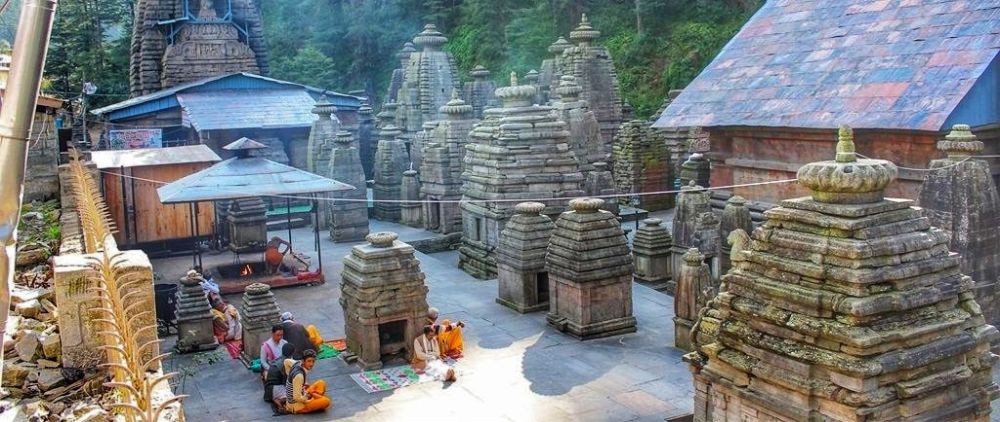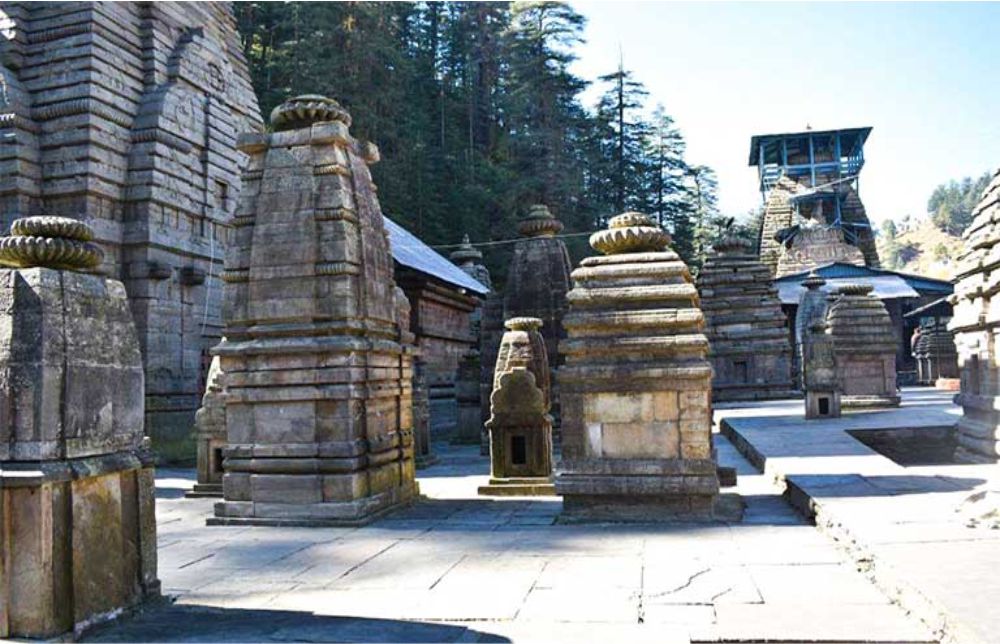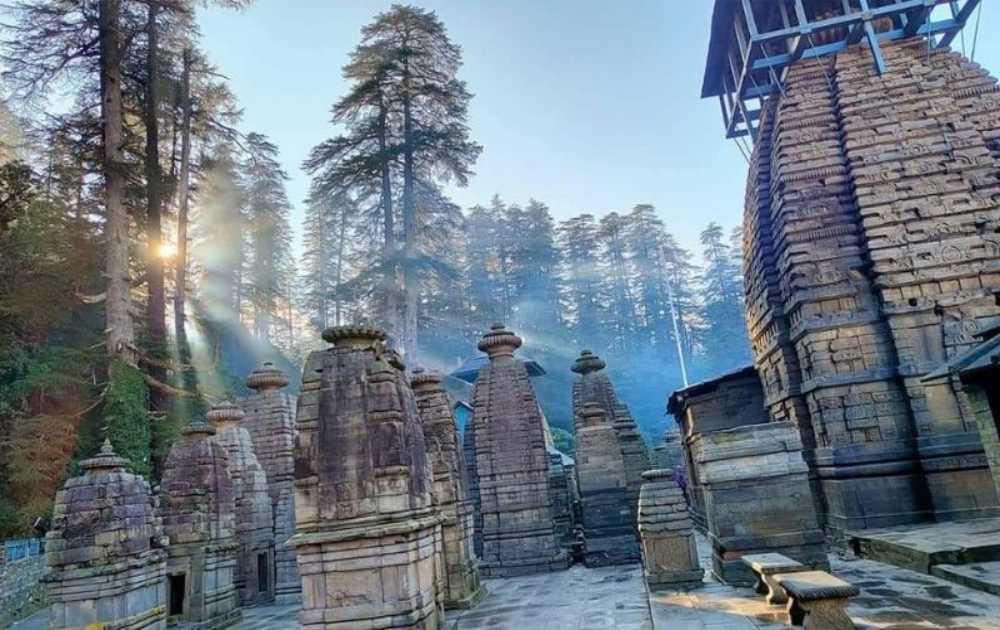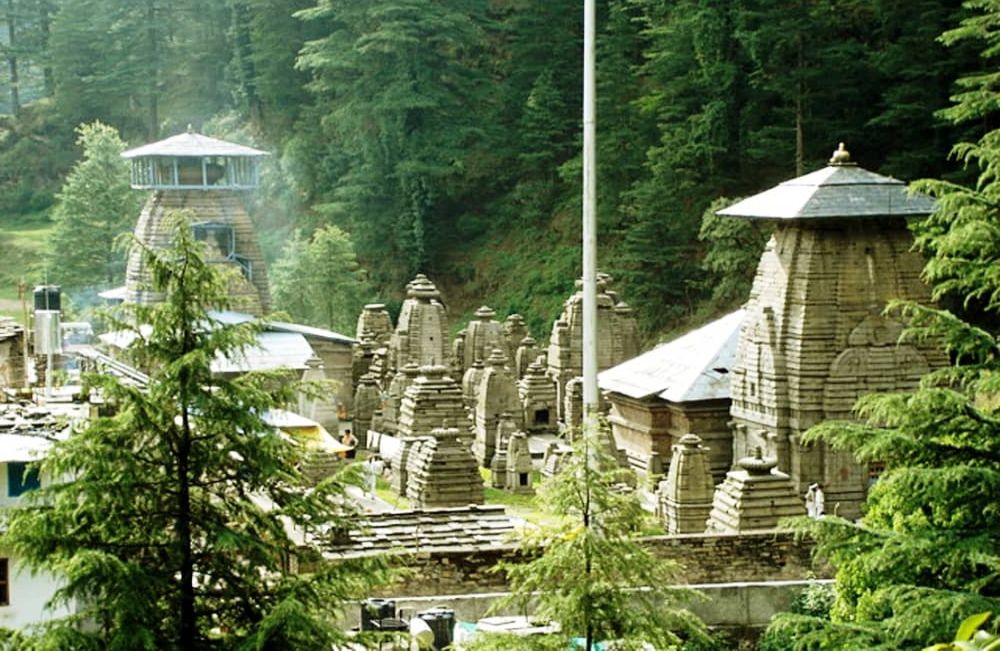Jageshwar is the Hindu pilgrimage town, one of the significant Dhams (pilgrimage regions) in the Shaivism tradition. The Archaeological Survey of India is in charge of managing the site, which is protected by Indian law (ASI).
It has the temples of Dandeshwar, Chandi-ka, Jageshwar, Kuber, Mritunjaya, Nanda Devi or Nau Durga, Nava-grah, a Pyramidal shrine, and Surya.
The location commemorates the annual Maha Shivratri Mela (Shivratri celebration). It takes place in early spring. Additionally is celebrated the Jageshwar Monsoon Festival, which occurs during the Hindu calendar month of Shravan (which overlaps with July-August).
Jageshwar Temples, also known as Jageshwar Valley Temples, are a collection of 125 historic Hindu temples that were built between the seventh and fourteenth centuries close to Almora in the Almora district of the Himalayan Indian state of Uttarakhand.
The Jageshwar collection of temples is comparable to some significant historical Hindu temple complexes located in India. According to Chanchani, almost every single small and big temple in the Jageshwar valley has “basic square plan sanctums bordered by plain walls and tiered superstructures.”

History
Jageshwar is renowned for its 124 great and tiny stone temples dating from the ninth to the thirteenth centuries AD. To learn more about the historic dynasties and shrines that were erected there, culture lovers and historians travel to the area.
The exact beginnings of the Jageshwar temples location are still a mystery. Its isolation has restricted scholarly research and attention. For both temples and stone steles, the site displays evidence of several architectural styles and building periods that span from the seventh to the twelfth centuries, as well as more recent times. There are several different estimates for the same temple or stele, some as long as 1,400 years.
The ASI claims that some people are from the post-Gupta period or the second half of the first century, while others are from the second millennium. They are attributed to the Katyuri or Chand hill dynasties in some colonial-era conjectures, but there is no textual or epigraphic evidence to confirm or deny these claims.
Again, there is neither textual nor epigraphical evidence to back up the widely held belief that Adi Shankar constructed several of these temples. Instead, some of these Hindu temples’ architectural design and style date back to the early 7th century, between 50 and 100 years before Adi Shankar stayed there.
Temple of Jageshwar

What can be said about the chronological order of monuments in the Jageshwar valley. It is limited by the lack of systematic study of Indian temples and ruins in many distant Himalayan locales. Chanchani claims that, with the earliest monuments dating from the 7th century, the valley had most certainly attained a significant position in Indian architecture by the 10th century.
The valley is home to two significant groups of Hindu temples as well as numerous roadside shrines. As protected pre-12th century sites, 151 of these temples have been identified by ASI.
The Dandeshwar group temples (Dandeshwar samuh mandir, 15 temples) and the Jageshwar group temples(Jageshwar samuh mandir, 124 temples) are the two major groups. The largest of these, all dating to the last centuries of the first millennium, are temples 37, 76, and 146.
Lakulish Shaivism was once the main religion practiced in Jageshwar. Perhaps by monks and immigrants who came from Gujarat and other areas of the Indian subcontinent’s plains and resided in the area’s high mountains.
Activites

Jageshwar is renowned for its 124 great and tiny stone temples dating from the ninth to the thirteenth centuries AD. To learn more about the historic dynasties and shrines that were erected there, culture lovers and historians travel to the area.
Jageshwar is a perfect location for meditation because it is far from the noise and bustle of the city and is surrounded by dense stands of deodar. This allows one to be near to nature.
Spending time outside with your family and friends while camping is another enjoyable activity. Jageshwar is a great area to camp and take in the beauty of nature because it is surrounded by a lot of deodar trees.
Frequently Asked Questions
Sun. – Sat. 12:00 AM – 11:59 PM, Jageshwar Dham is open
To guarantee your seat, we advise making reservations for Jageshwar Dham trips ahead of time.
Things to do Near Jageshwar Dham (1.49 km) are Zero Point Dandeshwar Temple (15.63 km) and Wildlife Sanctuary of Binsar (15.26 km).
From Almora, one can take a bus or a private taxi. Almora is 36 kilometres away. From Delhi I.S.B.T., Dehradun, take a bus to Almora. Train to Jageshwar: The railroad station closest to Jageshwar Temple is Kathgodam.





Leave a Comment :